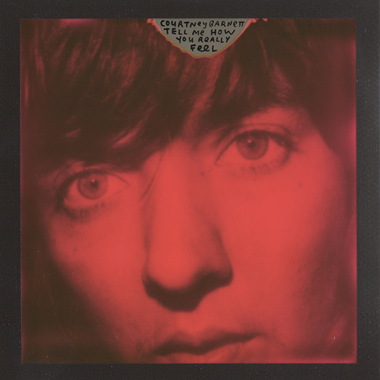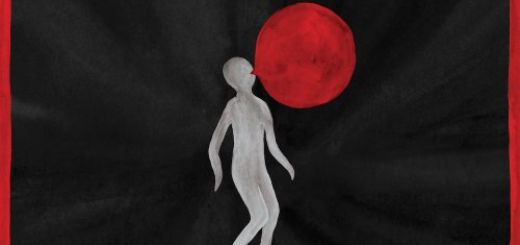TELL ME HOW YOU REALLY FEEL by Courtney Barnett

Courtney Barnett – TELL ME HOW YOU REALLY FEEL
Favorite Songs: “City Looks Pretty,” “Need A Little Time,” “Nameless, Faceless,” “Help Your Self,” “Sunday Roast”
Self-care is sometimes putting yourself first. When faced with the pressure of releasing a second album, Courtney Barnett did not let it consume her—in fact, she used it to her advantage. The 30-year0old Australian singer has moved on from the people-watching featured on her debut studio album, SOMETIMES I SIT AND THINK, AND SOMETIMES I JUST SIT, and matured into introspection on mental health. Once again, Barnett uses her songwriting to create poignant lyrics that complement her deadpan delivery. Her sophomore album, TELL ME HOW YOU REALLY FEEL, is neatly organized storytelling ranging from dark and seductive to commentaries on the human condition, frustrated feminist venting, and sweet notes of encouragement. Using a power from within, she harnesses beautiful melodies that suit her voice and danceable guitar riffs.
As an opener, “Hopefulessness” is more of a prelude than a first chapter; the steady and simple electric guitar riff captures your attention while Barnett’s melodious voice slowly accompanies it. The slow pace and darker tones (“You know it’s okay to have a bad day”) set up the frame of mind for the nine other tracks, which are poppier and focus on more specific situations. These first lyrics sound like an internal dialogue, with the progressively more distorted guitar adding to the chaos while the drums carry the humdrum beat until they blend into the sound of a whistling kettle pot, the latter remaining as the last sound standing when the instruments and vocals fade. The play on hopeful and hopeless adds a layer of mystery and asserts a different kind of tongue-and-cheek than what we heard on her debut.
She then effortlessly glides into “City Looks Pretty”—the best song on the album. Barnett continues the dialogue from the opener, but externally. Even though the drums keep the song relatively fast-moving, Barnett sings with a pensiveness that makes the song sound light in the chorus despite talking about depression: “Sometimes I get sad / it’s not all that bad.” The rest of the lyrics are more akin to her previous work, a balance of complex and conversational. Similar to the first track, the ending is drawn out with a minute-long outro followed by another minute of instrumentals.
Next is “Charity,” a song about how we’re all just faking it, whether it’s the picture perfect Christmas card or the stream of photos of how “You must be having so much fun / Everything’s amazing,” when in actuality we’re all stuck being subservient to the companies and institutions who sell us this idea of happiness. The title is her indirect way of calling us out for spending our time and sanity on these empty and superficial things: we’re giving our happiness away for free and pretend we’re not all lost and scared in the process. It’s very subtle on her part, probably because she is tackling vulnerable subjects while providing a safe space, defining her talents as a songwriter who doesn’t always have to be obvious or blunt.
As a female artist releasing music in 2018, it’s no surprise that Barnett has added to the long list of direct feminist songs that have come out this year. On “Nameless, Faceless,” Barnett quotes Margaret Atwood in the chorus to refer to the anonymous online trolls that she has faced: “Men are scared women will laugh at them / I wanna walk through the park in the dark / Women are scared that men will kill them / I hold my keys / between my fingers.” The music changes between the verses (light, charming) and the chorus (gritty, frustrated), a contrast that depicts the mixture of emotions women feel when we encounter these situations; as you read or respond to these nameless and faceless men, you have to keep your composure and act friendly (because on some level you are afraid for your life). As the chorus suggests, you’re internally fighting through centuries of being oppressed as a “weaker” sex and trying to disarm a man who doesn’t know what he’s talking about. To top it off, her deadpan delivery adds the perfect tone for the witty verses. While all this works on “Nameless, Faceless,” it can’t be said for “I’m Not Your Mother, I’m Not Your Bitch,” an even grittier, pure garage rock mantra that says what women actually want to tell members of the Men’s Rights Activists movement who feel oppressed by women and feminism. It’s a rough, angry song, but without it TELL ME HOW YOU REALLY FEEL’s commentary on the current social climate would be incomplete.
This contrast in style to the rest of the album acts as a diversion from the happier ending. The darkness of depression and frustration of oppression is over, and it’s time for realizing you need self-care with “Crippling Self Doubt And A General Lack of Self Confidence” and “Help Your Self.” The latter reaches cathartic new levels of noise and chaos, but with a sing-songy chorus that plays on the concept of helping yourself and your self.
This might seem like a long-winded play-by-play of a 37-minute album, but Barnett’s craftsmanship is worthy of every word. While it might be only her second studio album, with TELL ME HOW YOU REALLY FEEL she’s continuing her career with strong and impressive work, especially in the story arc she created to explore her struggles.
Verdict: Recommend



